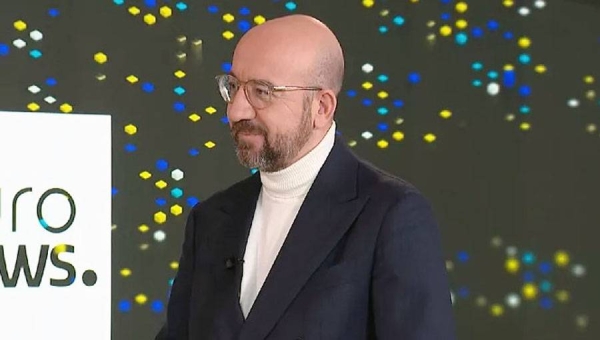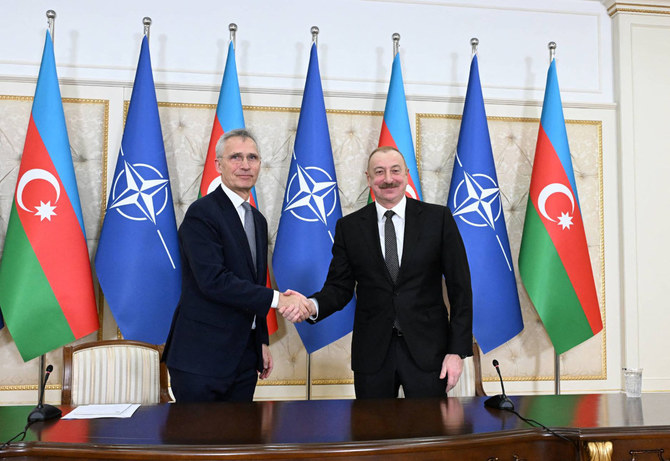
The European Union is not naïve about the diplomatic rapprochement between Russia and China against the backdrop of the Ukraine war, European Council President Charles Michel said on Wednesday.
But, he noted, the ever-closer relation should not deter Brussels from engaging with Beijing.
“We are absolutely convinced that it is important that China doesn’t support Russia,” Michel told Euronews in an exclusive interview recorded ahead of a two-day leaders’ summit in Brussels.
“It’s important that China supports the international law, the stability through the UN Charter.”
“I’m not naïve. I know there are close ties between China and Russia,” he went on.
“But on the other hand, I think that in those circumstances, it is very clear that we need to engage with China, not because we agree on everything with China, on the contrary, but because we need to defend our interests and to defend our principles.”
In his interview with Euronews, Michel reaffirmed his support for the 10-point peace plan proposed by Ukrainian President Volodymyr Zelensky, which calls for the total withdrawal of Russian troops and the restoration of Ukraine’s internationally-recognized borders.
Zelensky’s proposal stands in stark contrast with the 12-point document recently put forward by China, where the question of occupied land is conspicuously absent.
The Chinese plan refers to international law principles but avoids describing the war as a war or invasion, instead speaking of a “crisis.” It also urges the lifting of “unilateral sanctions” and the end of “Cold War mentality” — language seen as barely-veiled criticism of Western allies.
“This peace plan is not what we believe in,” Michel said about Beijing’s pitch. “We believe in the peace formula proposed by President Zelensky, which is based on the UN charter, the international law and the multilateral approach.”
The European Council president described as “extremely important” the new tranche of military aid approved this week by EU foreign and defense ministers, which for the very first time features €1 billion to pay for the joint procurement of ammunition.
“This is a concrete decision for real European defense. And you know that in the past, we discussed a lot this question, for some it was a theoretical debate. Now, this is the reality,” Michel told Euronews.
“It was impossible to imagine such a decision even a few weeks before the start of the full-scale invasion.”
Asked to draw the line between military support and active belligerence, Michel said the EU was legally entitled to help a nation under attack.
“There is no doubt that there is no intention to attack Russia. There is an aggressor: this is Russia. There are victims,” Michel said.
“We are supporting the international law because we know that if we do not support Ukraine, it means that the world will be less safe in the future.”
Michel also discussed the state of the European economy, which has been severely battered by the ripple effects unleashed by Russia’s war.
“We feel that it’s important to address the long-term competitiveness of the European Union. We are facing many difficult challenges at the same time,” Michel said, citing high energy prices, climate change, the digital transition and the lack of necessary skills.
Financial anxiety increased this month after the spectacular collapse of Silicon Valley Bank, the biggest American bank to fall since 2008, and the government-brokered takeover of Credit Suisse, Switzerland’s second-largest lender.
“We are monitoring what’s happening in Switzerland, in the United States,” Michel said. “But I am confident that we have the right tools in order to make sure that we keep a stable situation.”
In the president’s view, the latest developments should serve as an “additional argument, not a trigger” to advance talks on the long-stalled European banking union, which remains incomplete due to persistent divergences between member states.
The union’s third pillar, known as the European deposit insurance scheme (EDIS), is the last piece in the puzzle waiting to be agreed upon. Coincidently, EDIS is supposed to prevent desperate bank runs as the one that brought down Silicon Valley Bank.
“We have been working a lot on the question, but maybe it is time to speed up,” Michel said. “And I hope it will be possible to give a political impetus.” — Euronews











